
[ RECIPE ] FlatIron Steak with Sweet Potato Wedges Food & Fitness Always
For optimal flavor, consider marinating flank steak for at least 4-6 hours, while flat iron steak can benefit from a marinade of 1-2 hours. This will enhance their natural flavors and tenderness before cooking. 5. Can I grill flat iron steak like a flank steak? Yes, you can grill flat iron steak just like flank steak.

How To Cook The Perfect Steak. Flat Iron Steak. SRP YouTube
Discover the unique characteristics, flavors, and cooking methods for each cut, helping you choose the best option for your next delicious meal. Whether you prefer the tenderness of flat iron steak or the bold flavor of flank steak, this guide will assist you in making an informed decision.
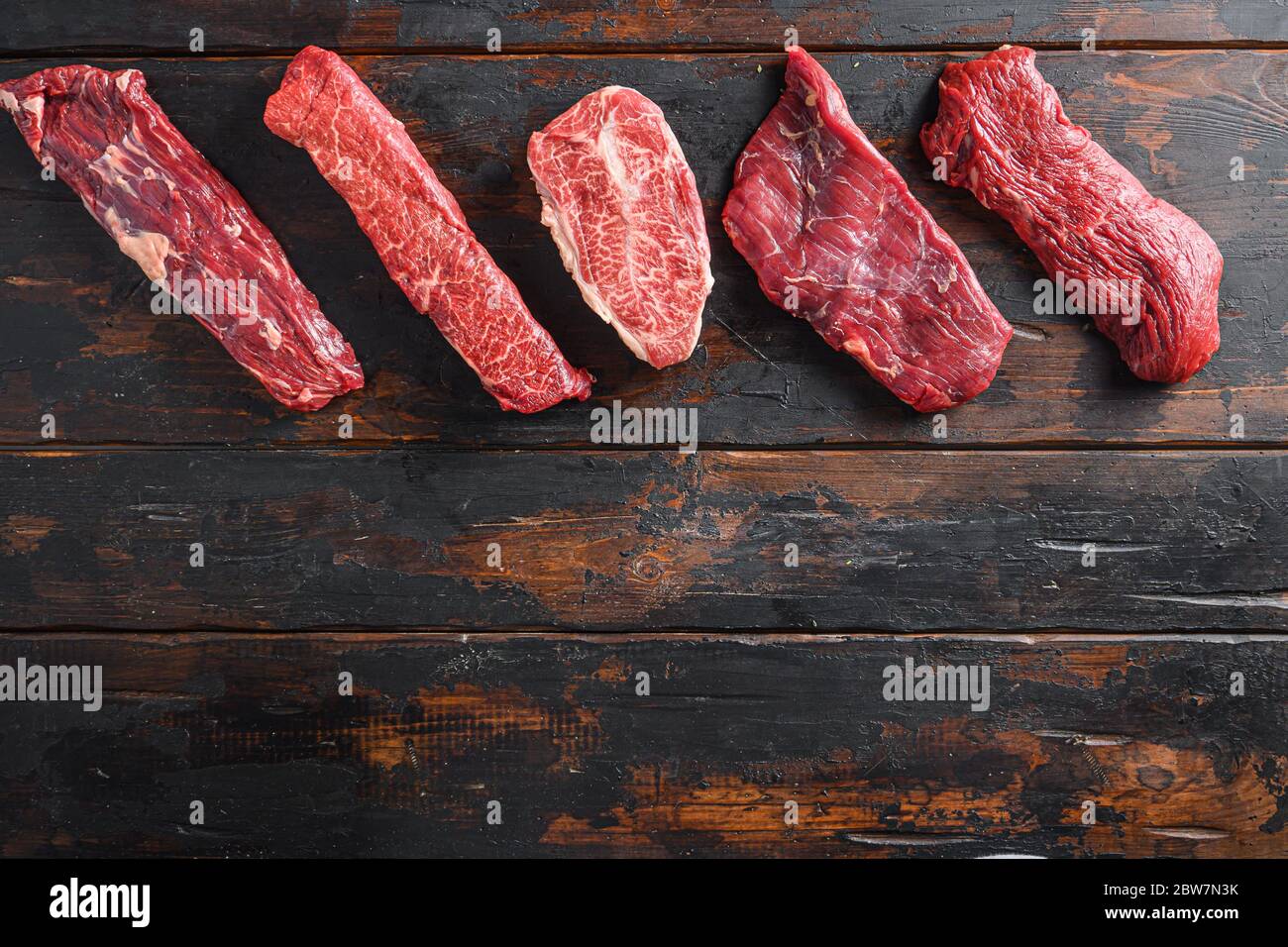
Ein Satz von verschiedenen Arten von rohem Rindfleisch Steaks
Nutritional Value Comparison. Comparing the Nutritional Values of Flat Iron Steak and Flank Steak is essential to determine which one is a healthier choice. Flat Iron steak has more protein, iron and vitamin B12, whereas flank steak is higher in vitamin B6 and zinc. It is important to note that both cuts are lean options when trimmed properly.

Flank Steak Tacos, Flank Steak Recipes, Grilled Steak Recipes, Grilled
Flavor: Flat iron steaks have a beefy and slightly sweet flavor with a subtle mineral taste. Cooking Methods: Flat iron steaks are best cooked over high heat on a grill or in a cast-iron skillet. They can also be broiled or roasted in the oven. It is important not to overcook flat iron steaks as they can become tough and dry. Flank Steak
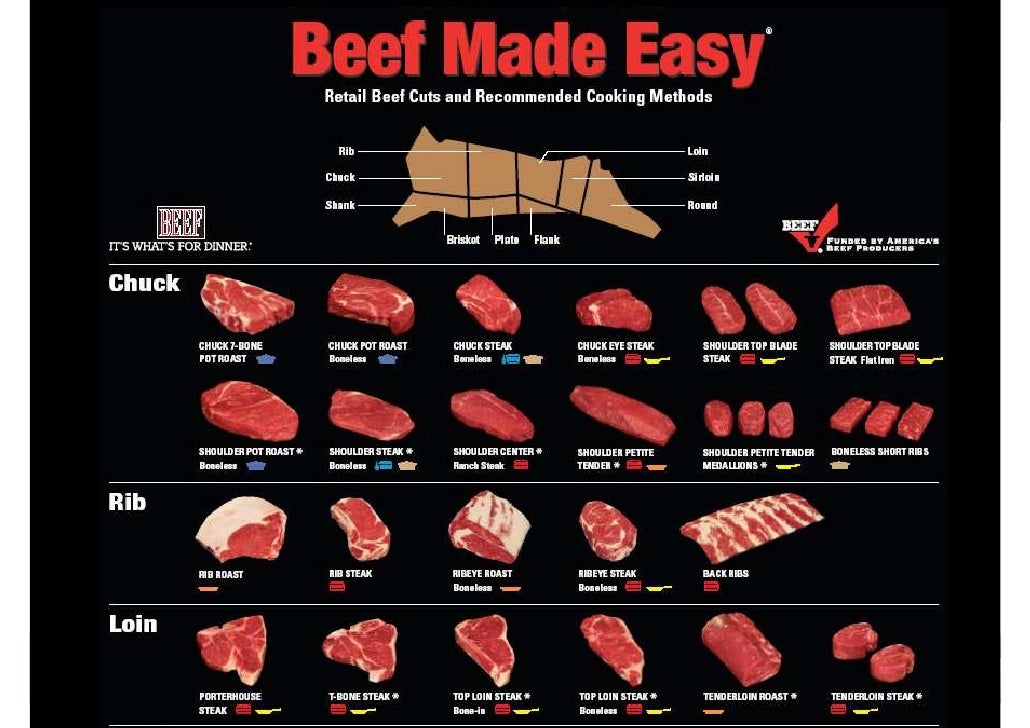
flat iron steak vs flank steak
Flat iron steak can be used interchangeably with skirt, flank, and hanger, and similarly, it is not recommended to cook it past medium-rare, as it can become tough and unpleasant. If you're in the market for a go-to cut for a steak sandwich, this is a great option because it's relatively affordable, rich in flavor, and easy to prepare.

What Exactly Is a Flat Iron Steak? Flat iron steak, Expensive steak
Flat iron steak has a rich and beefy flavor, tender and juicy, with a slightly chewy texture, while flank steak has a bold and robust flavor, leaner and tougher texture. Grilling or broiling is recommended for both cuts, and high-heat cooking methods develop a charred crust. Temperature control is important for desired doneness, and marinating.
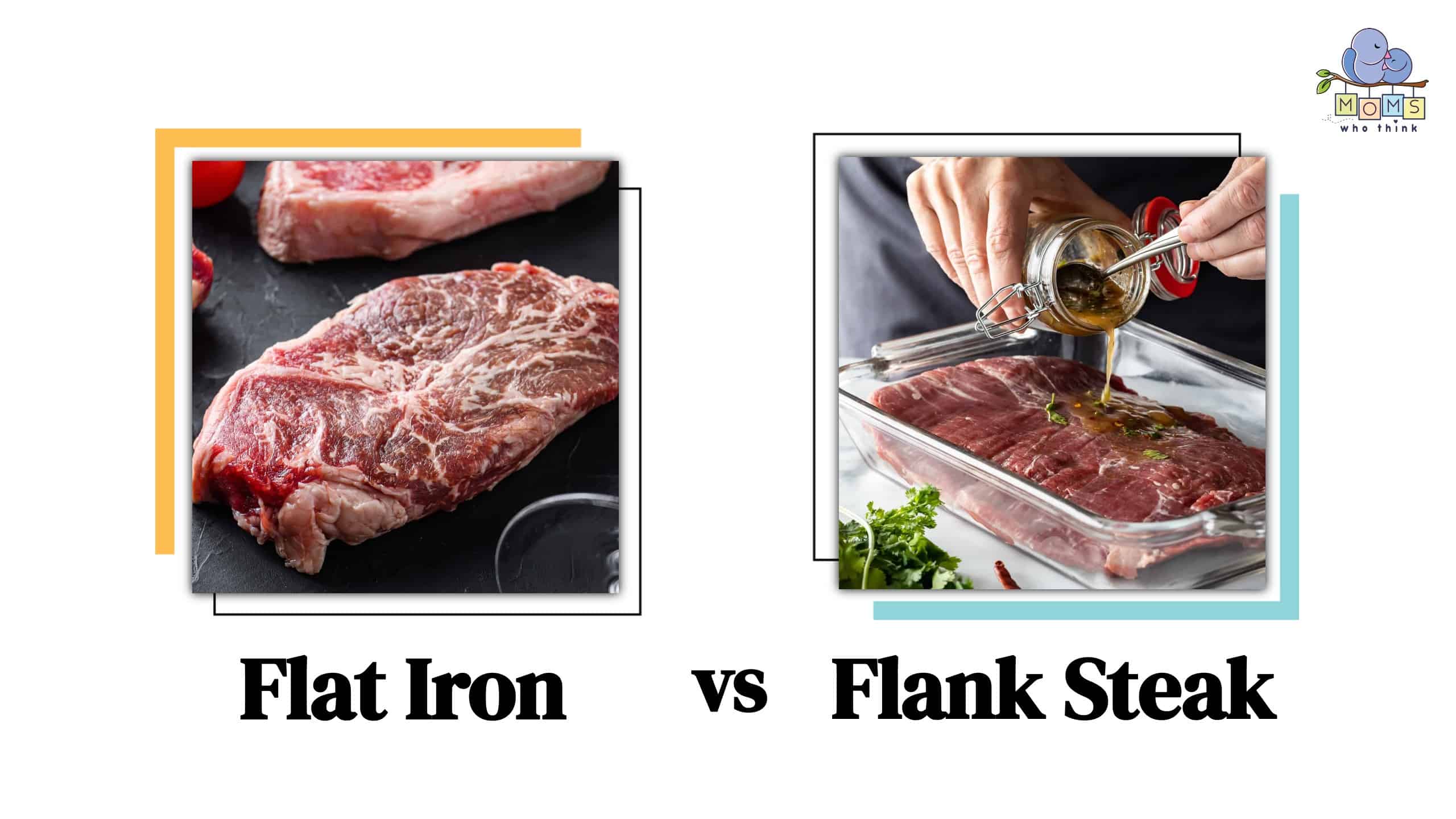
Flat Iron vs. Flank Steak Differences in Cut, Cooking, and Nutrition
The flat iron comes from the chuck primal, while the flank steak is from the flank primal. Flat iron steak is more tender, has more marbling, and a richer taste. On the other hand, flank steak is way bigger, has a stronger beefy flavor, and is way more versatile. Below is a table comparing flat iron steak vs. flank steak, including information.
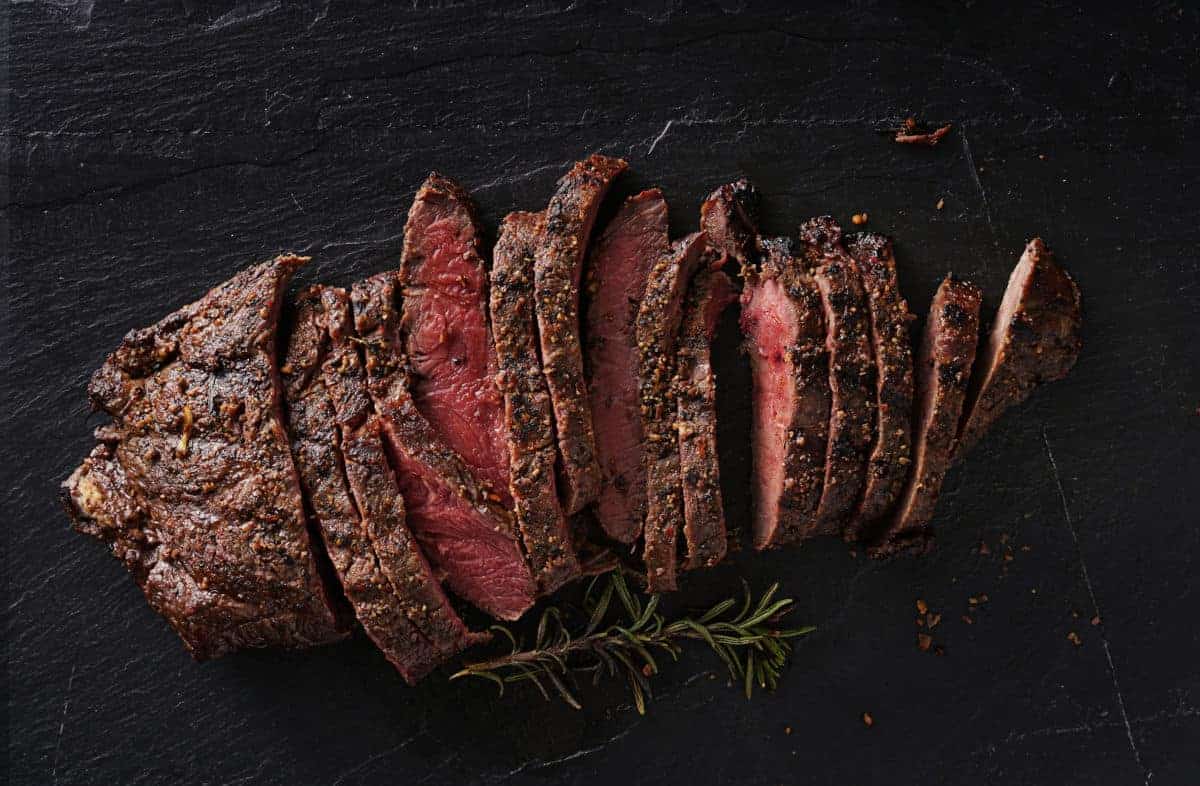
What is Flat Iron Steak? Where to Buy and How to Cook it
Flat iron steak comes from the shoulder, while flank steak comes from the belly. 2. Flat iron steak is a relatively tender cut of beef, while flank steak can be a bit more chewy. 3. Flat iron steak is typically cooked by grilling or pan-searing, while flank steak is often marinated and grilled or roasted. 4.
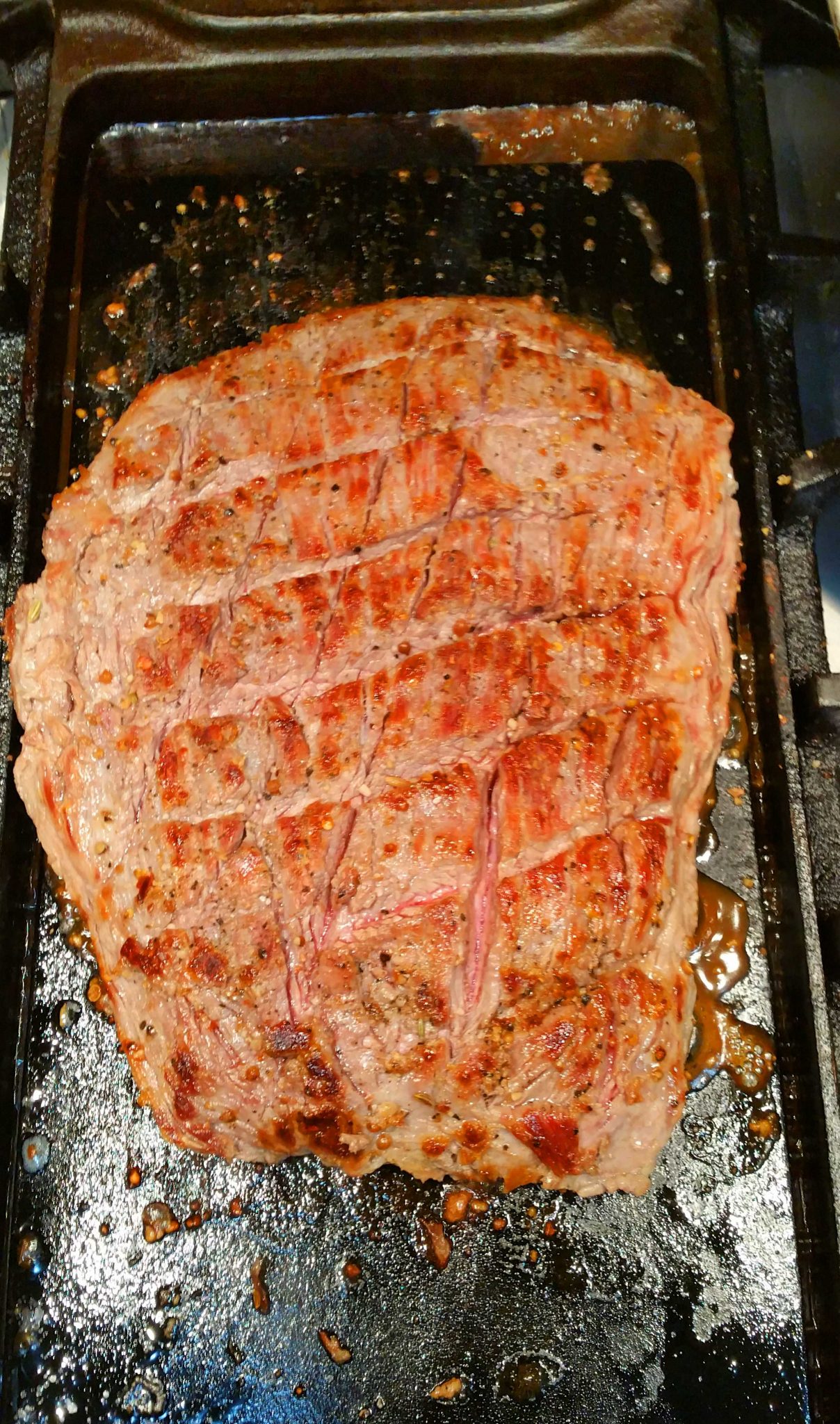
How to cook flank steak The short answer is HOT and FAST Sweet Savant
Flank steak is known as one of the tougher cuts of beef, while flat iron is quite tender. Flank steak usually requires a marinade to get sufficiently tender. The flat iron cut comes from the chuck primal, which is in the shoulder of the cow. Meanwhile, flank steak comes from the abdominal area of the cow, known as the primal flank.
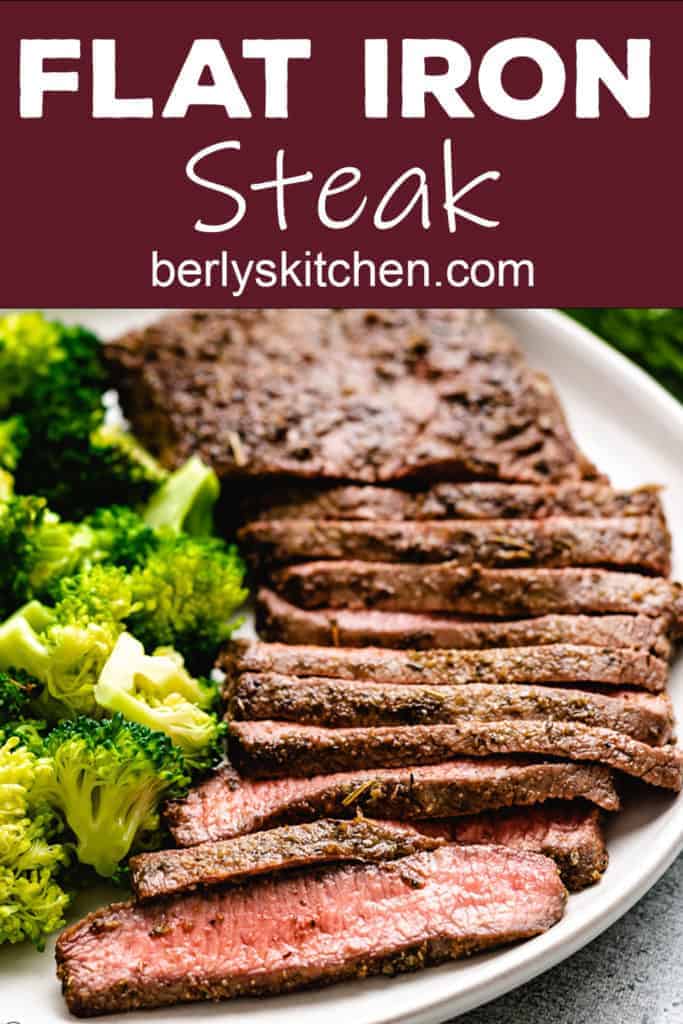
Easy Flat Iron Steak vs Flank Steak Which is Best?
The flat iron steak is a fairly flat steak similar to the flank steak. However, the flank steak is leaner and tougher than the flat iron steak. The flat iron steak, despite how "flat" it is, surprisingly has more fat marbling and has a rich flavor . The flank steak has a strong beefy flavor.

Pin on Cuts of Meat
Check the temperature with a meat thermometer to ensure its medium-rare (130 F). Remove the baking sheet and place the steak on a cutting board. Loosely place foil over the steak and let it rest for 5 minutes, ensuring the juices have time to sink back into the meat. Slice your flat iron against the grain and serve!

"So what are you making for dinner?" Roasted Flat Iron Steak with
The flat iron steak is quite versatile, delicious simply coated in oil and salt and thrown on the grill, as well as cooking after some time in a flavorful marinade. Because of its muscular structure, it is best if it isn't cooked beyond medium; the recommended doneness is medium-rare, or around 135 F (60 C). This steak is perfect for the grill.
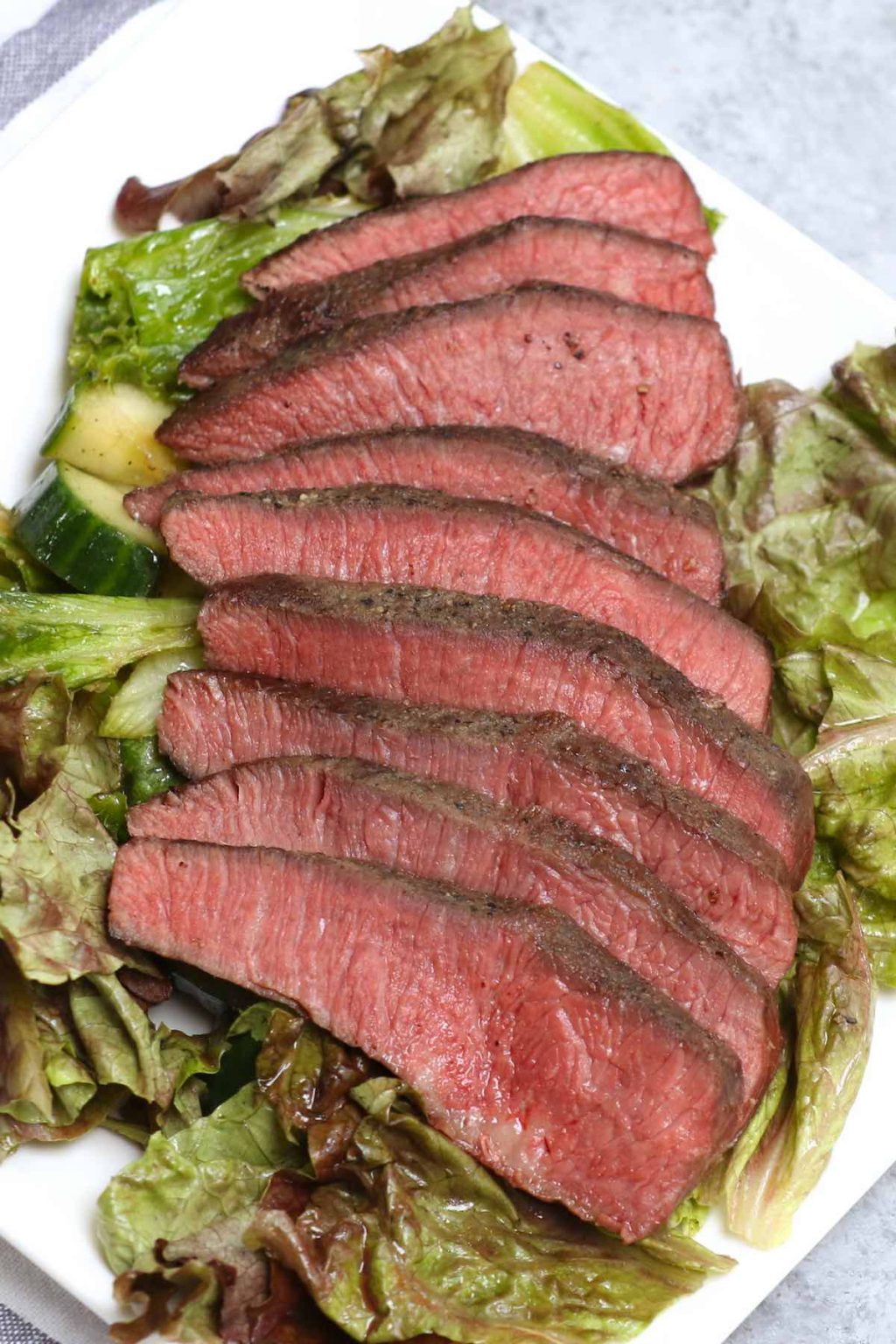
Flat Iron Steak and How to Cook It Easily TipBuzz
The flat iron steak comes from the chuck or shoulder area, specifically the top blade muscle. On the other hand, flank steak is sourced from the lower abdominal region of the cow and boasts an intense beefy flavor, although it is leaner and less naturally tender. Flat iron steak is known for its exceptional tenderness, fine marbling, rich.

flat iron steak vs flank steak
1. Can I substitute flank steak for flat iron steak in a recipe? Yes, you can substitute flank steak for flat iron steak in many recipes, especially those that call for grilling or pan-searing. Keep in mind that flank steak is leaner than flat iron steak, so it may require a shorter cooking time. 2.

Meat Experts Butcher One of the Most Tender Steaks the Flat Iron
The two steaks have immensely different flavor profiles. A flat iron steak has a ton of marbling, which makes the steak very tender and soft. The flavor is very rich because of the marbling and fat ratio. Flank steak, however, has far less marbling. It is a tougher steak and is very lean. The flavor profile is much more intense.
/flat-iron-steak-landscape_annotated-027d4209cef34edd81807feece19b782.jpg)
What Is Flat Iron Steak?
How to Prepare and Cook Flat Iron Steak. Turn the oven temperature up to 200 degrees, brush them with oil and then season the steaks with salt and pepper. Once placed in the oven, you should cook steaks to an internal temperature of 115F to 120F for medium rare. Cooking time will vary from 20 to 40 minutes, based on the thickness of the steak.